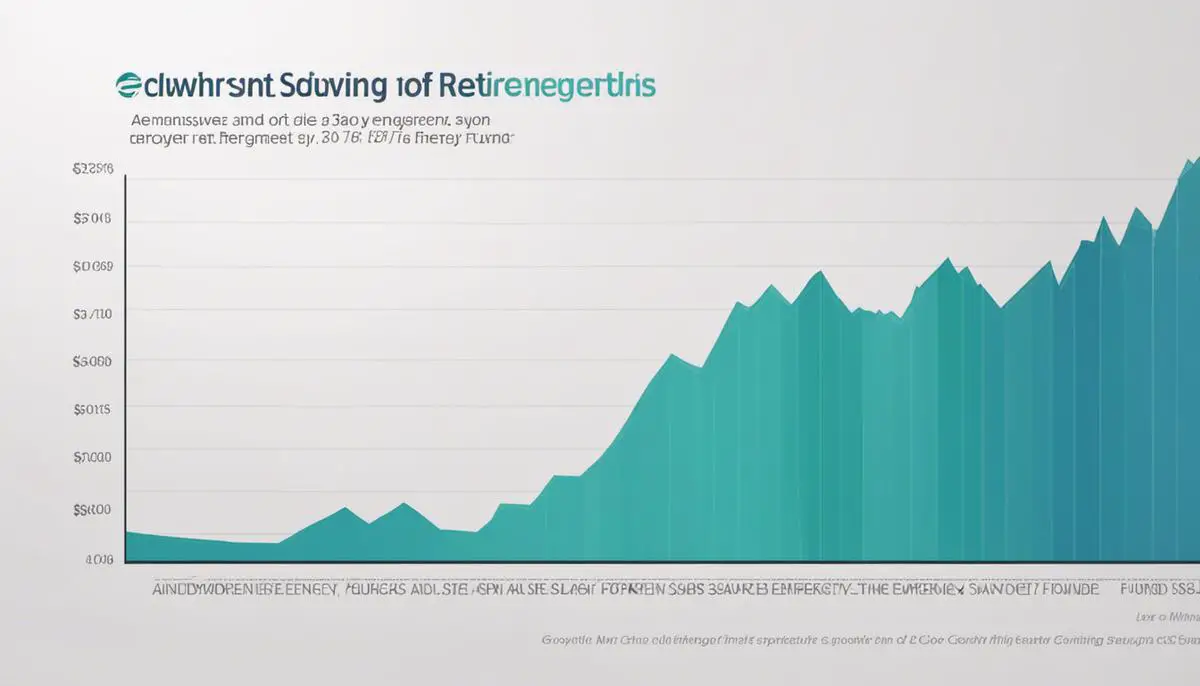The dream of being financially independent is bright on every young adult’s horizon. However, while many fantasize about this exciting milestone, only a handful understand what it truly entails or have a roadmap to navigate their way. Financial independence goes beyond mere income generation; it signifies control over one’s life, time, and decisions. For young adults stepping into the real world, there is an urgent need to grasp this concept and what it means for them. Moreover, contemplating the fundamentals of effective money management, debt reduction strategies, the power of investment, and the importance of planning for retirement and emergency funds has never been more crucial.
Understanding Financial Independence
Understanding Financial Independence
Financial independence refers to the state of having sufficient personal wealth to live, without having to actively work for basic necessities. For most people, financial independence aligns with retirement. However, younger adults are increasingly striving for financial independence at a much earlier age. This trend is inspired in part by the ‘FIRE’ (Financial Independence, Retire Early) movement, which encourages saving and investing aggressively to achieve financial autonomy sooner.
Why Financial Independence Matters
One of the primary reasons financial independence is significant, especially for young adults, is that it gives them control over their time and their lives. This is not limited to not needing to work. It also entails having the financial capacity to handle unforeseen circumstances, indulge in pursuits they are passionate about, help people and causes that matter to them, and prevent financial stress from steering their life decisions.
Financial Independence: Benefits and Challenges
One of the prime benefits of aiming for financial independence is that it encourages good financial habits. It motivates individuals to save, invest, and spend smartly. Striving for financial independence can improve one’s understanding of personal finance, elevate mindfulness about money, and promote decision-making focused on long-term benefits instead of instant gratification.
While the pursuit of financial independence is beneficial, it’s not without its challenges. For young adults especially, it can seem daunting to save and invest large parts of their income when they are just starting their careers, or still paying off student loans. Striking a balance between preserving present quality of life and securing future financial freedom can also be tricky. Moreover, it demands discipline, patience, and a willingness to learn and adjust financial plans as required.
Embarking on the Path to Financial Independence
- Budgeting – The bedrock of financial control lies in crafting a practical budget. This indispensable tool provides insight into your income and expenses, averts monetary issues, and shapes your savings objectives.
- Saving – An inherent pillar of financial autonomy, saving provides a cushion of security. Begin with an emergency fund before branching out to saving for short- and long-term aspirations.
- Investing – While savings can provide a sturdy foundation, investing can catapult your financial growth, harnessing the magic of compound interest.
- Creating Additional Revenue Sources – Solely relying on a single income source can pose a risk. Expanding income streams, whether through part-time employment, freelancing, or investments, enhances your earning capacity and accelerates your journey to financial independence.
- Effective Debt Management – Accumulating excessive debt can disrupt the path to financial autonomy. Practice discerning borrowing, prioritize settling high-interest debts, and evade superflous debts.
- Persistent Learning – The financial landscape is intricate and ever-evolving. Maintain an attitude of lifelong learning, keep abreast of market fluctuations, and adjust your financial tactics to navigate successfully.
Do not forget, financial independence is a long-haul journey, not a fleeting sprint. Bask in small triumphs, stay driven, and keep faith in your financial aspirations. With committed monetary discipline and a mindset oriented towards growth, financial independence is a plausible reality for anyone, regardless of their socio-economic background or current financial situation.

Basic Concepts of Money Management
Grasping the Basics of Money Management: Budgeting
The groundwork for wise money management begins with budgeting. This process entails an in-depth understanding of your income and expenses, and a financial blueprint to achieve your monetary objectives. A well-structured budget should factor in both your fixed costs such as rent, utilities, groceries, and your variable costs like entertainment and dining expenses. It should also cater to financial goals like saving for a house or eradicating debt. Numerous digital tools and apps are available to facilitate tracking and strategizing your budget.
The Power of Saving
Saving is another critical aspect of money management. Even if the amount seems small, these savings can accumulate over time – an essential factor for achieving financial independence. The amount you save can help in meeting short term needs like unforeseen expenses, long-term goals like buying a house, or planning for retirement. It’s always a good idea to set aside a certain percentage of your income towards savings. It’s recommended to try and save at least 20% of your income.
Investing: Building Wealth Over Time
Investing is the strategic placement of your saved money to get financial returns. While it carries potential risks, investing ensures your money is working for you, leading to better long-term returns compared to just savings. Investments can take multiple forms – stocks, bonds, mutual funds, or real estate, etc. Also, keep in mind, the earlier you start investing, the greater the potential for your wealth to compound and grow.
The Importance of Debt Management
Managing debt is a crucial aspect of money management, as unchecked debt can greatly impede your financial freedom. High-interest debt, like credit card debt, can pile up quickly if not addressed immediately. Understanding various debt repayment strategies, such as the snowball or avalanche methods, can make handling debt less overwhelming. Avoiding unnecessary debt and making timely payments can also have a positive impact on your credit score, which in turn influences future loan abilities.
Impact of Responsible Financial Behaviors
Adopting responsible financial behaviors like proper budgeting, regular saving, smart investing, and controlled debt management can lead to short-term and long-term financial independence. In the short term, it could mean having emergency savings for unexpected expenses or not living paycheck to paycheck. In the long term, it could lead to the ability to retire comfortably or live a debt-free life. It’s never too late to start making smart financial decisions.
Mastering Essential Money Management Skills
For young adults, a firm grasp of fundamental money management concepts like budgeting, saving, investing, and managing debt can provide the foundation for informed financial decision-making. By putting these important skills into practice, not only are you able to manage your money more proficiently, but you also set yourself on the path to financial independence. There’s a wealth of tools, online resources, and professional advice available to help guide you on your journey. It’s important to remember, though, that achieving financial independence is not a race, but a long-term commitment. So, start small, stay open to learning, and don’t be disheartened by setbacks.

Strategies for Debt Reduction and Avoidance
Grasping the Concept of Debt and Its Influence on Financial Independence
Debt, which obligates the borrower to repay a lender within a specified timeframe, is commonly one of the first financial concepts that young adults need to understand and manage. It plays a key role in the journey towards financial independence. Regrettably, excessive debt can possess a detrimental influence on your fiscal liberty, potentially creating a recurring cycle of borrowing and repayment that might significantly hinder the growth of savings, investments, and overall wealth accumulation.
Strategies for Student Loan Management
Student loans, for many young adults, are the largest source of debt. How they handle this debt is key to achieving their financial freedom. To better manage student loan debt, consider consolidating multiple loans into one lump sum with a lower interest rate. If you can afford it, making larger payments to minimize the loan’s life can help reduce the total interest paid.
Federal student loans often offer income-driven repayment plans that cap your monthly payments in relation to your earnings. Additionally, some professions, like teaching in low-income areas or working for non-profit organizations, may qualify for loan forgiveness.
Managing Credit Card Debt
Credit card debt often accumulates due to high-interest rates and the ease of overspending. It’s important to understand your spending habits and make a conscious effort to live within your means. Always aim to pay your credit card balance in full each month to avoid interest charges.
In instances where it’s impossible to pay in full, focus on paying down the cards with the highest interest rates first, commonly known as the avalanche method. Alternatively, the snowball method, where you pay off the smallest debts first for momentum, is also an effective strategy.
Consider transferring your balance to a card with a lower interest rate, but be mindful of the fees involved. Lastly, consider seeking assistance from a credit counselor or using a budgeting app to keep your expenses in check.
Mortgage Management Strategies
When managing mortgage debt, consider making biweekly payments instead of monthly payments. This allows you to effectively make one extra mortgage payment each year, which can significantly reduce your loan term.
Another strategy is to refinance the mortgage for a lower interest rate, however, this depends on the market conditions and your credit score. Always factor in closing costs and understand the terms of your new loan when refinancing.
Proactive Steps Towards Financial Security
One crucial way to safeguard your finances is by building an emergency fund. This financial buffer can help you avert undue debt. Ideally, you should aim to save sufficient funds to cover at least three to six months’ worth of living expenses and stow it in a readily accessible account.
Another equally vital step involves prudent use of credit. Remain updated on your credit reports to validate their accuracy and also to keep tabs on your debts. Ensure that you understand your loans and credit cards’ terms and conditions thoroughly to evade penalties and additional charges.
Not all debt is bad – but it’s vital to comprehend the actual cost of debt prior to obtaining a loan. When calculating this, include the entire interest payments over the loan’s duration, then try contrasting this with any potential earnings you might accumulate if you had decided to invest the same money instead.

Investment and Wealth Building
Mastering The Basics of Investments
Investments are essentially assets or items acquired with the expectation that they would produce income over time or increase in value. These can range from stocks and bonds to real estate and mutual funds, each type of investment comes with its unique set of potential risks and rewards.
In the most bare-bones terms, investing is the allocation of funds in anticipation of reaping some form of future benefit. These benefits could materialize as financial returns, regular cash flows, or a rise in value, otherwise known as capital gains. The aim is to have your money working for you in different investment opportunities, with the ultimate goal of growing it over time.
Getting Started with Investments
Starting your investment journey requires a solid plan. Identify your investment goals, which may include retirement savings, buying a house or starting a business. Next, assess your risk tolerance and determine the appropriate asset allocation.
Choosing the right investment tools is also crucial. For beginners, mutual funds and exchange-traded funds (ETFs) can be valuable as they offer diversification and are managed by professionals. Consult with a financial advisor, if necessary, to ensure you make informed decisions.
Investment Strategies for Young Adults
Investing at a young age leverages the power of time, a crucial element when it comes to wealth accumulation. As a young adult, you have the advantage of time on your side that allows you to absorb market fluctuations and reap the benefits of long-term financial growth.
One effective investing strategy for young adults to consider is a buy-and-hold strategy. This strategy involves buying stocks or other assets and holding onto them for long periods to take advantage of potential long-term growth and returns.
Investing in individual retirement accounts (IRAs) or employer-sponsored retirement plans such as 401(k)s can also be beneficial. These accounts offer tax advantages that can boost your overall returns over time.
Diversification – Key to Risk Management
Diversification is a risk management strategy that involves spreading investments across various financial instruments, industries, and other categories to reduce risk. It is a valuable tool for young investors as it minimizes the risk of loss if one investment performs poorly.
By investing in a mix of assets, you spread the risk associated with your investments. The underperformance of one investment could potentially be offset by the strong performance of another.
Importance of Compound Interest in Wealth Building
Compound interest can have a profound impact on your overall wealth growth. Compound interest refers to the process where the interest you earn on your investments starts earning interest itself. It’s essentially “interest on interest,”
This snowball effect can lead to massive growth over time, particularly for young investors who have decades to let their investments grow. The longer the funds are left to compound, the greater the growth, showcasing the importance of starting to invest at an early stage.
Building Wealth and Financial Independence Through Investment
Attaining financial independence involves diligent planning – a sizable part attributed to investments. A strategic and well-executed investment plan makes your money an efficient worker, accruing gains over time without your active involvement. Thanks to the wonders of compound interest and the safety net of diversification, investments can produce substantial wealth and steady income, allowing you to maintain your lifestyle without continuous employment. This sought-after financial freedom comes from skilled money management and strategic investing.

Planning for the Future: Retirement and Emergency Funds
Future-Proofing Your Finances: Focusing on Retirement and Emergency Funds
Managing your finances effortlessly and achieving financial independence becomes less daunting if you appreciate the importance of planning for the future. Such preparation safeguards your post-retirement life and fortifies you against unforeseen financial emergencies preventing undue stress.
Emphasis on Retirement Savings Plans
Retirement savings plans have a significant role in financial planning for the future. These savings programs exist to ensure you have a comfortable retirement, maintaining your lifestyle without depending on employment income. It’s advisable to start building your retirement savings from your first paycheck, with the goal of accumulating a substantial fund by retirement age.
A productive strategy to expand your retirement fund is to tap into employer-match programs. In such programs, your employer can match a portion of your retirement savings, effectively boosting your overall savings. An example could be an arrangement where your employer contributes an additional half of every dollar you save, up to a defined limit, significantly increasing your savings over periods and essentially offering you free money.
Moreover, you can further augment your retirement savings by utilizing Individual Retirement Accounts (IRAs), which provide tax benefits. These benefits can be found in two major IRA types: the Traditional IRA and the Roth IRA. The Traditional IRA enables your savings to grow tax-deferred, meaning the taxes are only due upon withdrawal, whereas the Roth IRA allows tax-free growth and withdrawals during retirement, given certain requirements are met.
Emergency fund
Financial planning for the future also includes building and maintaining an emergency fund. This fund serves to provide financial security during unforeseen situations such as sudden job loss, a medical emergency, a major car repair, or any unexpected expense that may arise. Ideally, an emergency fund should hold three to six months’ worth of living expenses. This fund should be easily accessible, unlike the retirement savings, which are only meant to be tapped into during retirement.

The journey towards financial independence and effective money management might be intricate, yet it’s neither impossible nor discouraging. Implementing financially responsible behaviors and executing well-set strategies will, without a doubt, clear the path towards financial freedom. Pioneering in money management concepts, minimizing debts, making informed investments, and committing to planned savings will steer young adults to lead a financially independent life. Undoubtedly, a well-equipped young adult, with valuable money management and investment skills, is a powerful instrument for building economic resilience, fostering financial peace, and creating a robust foundation for future uncertainties.

